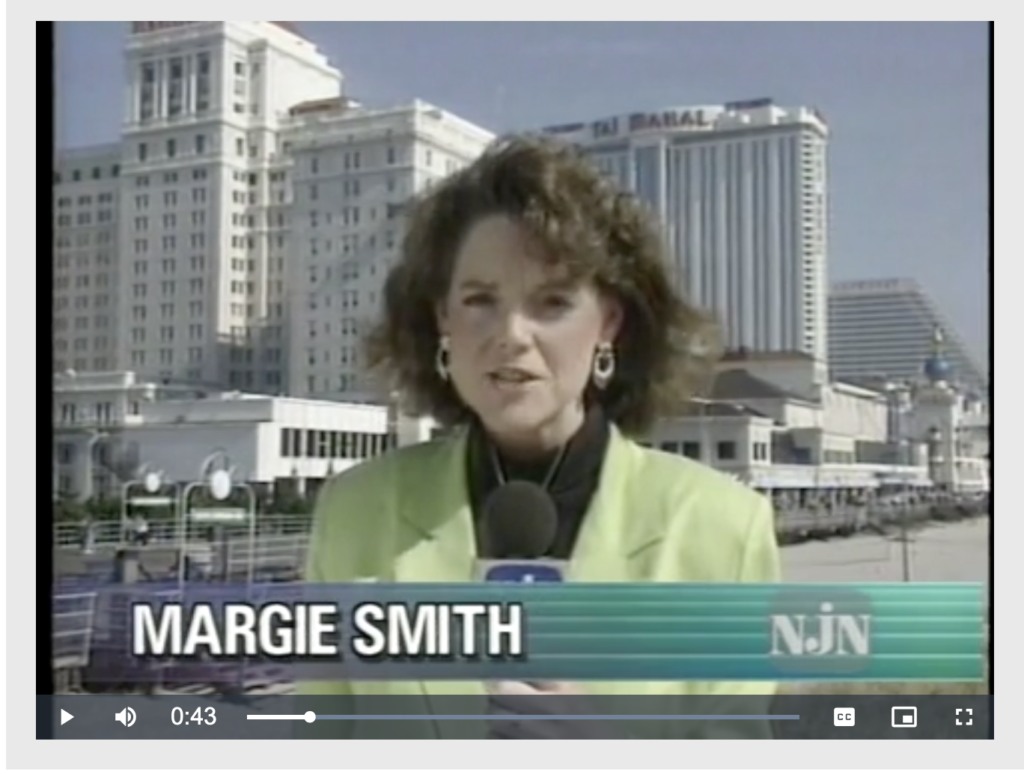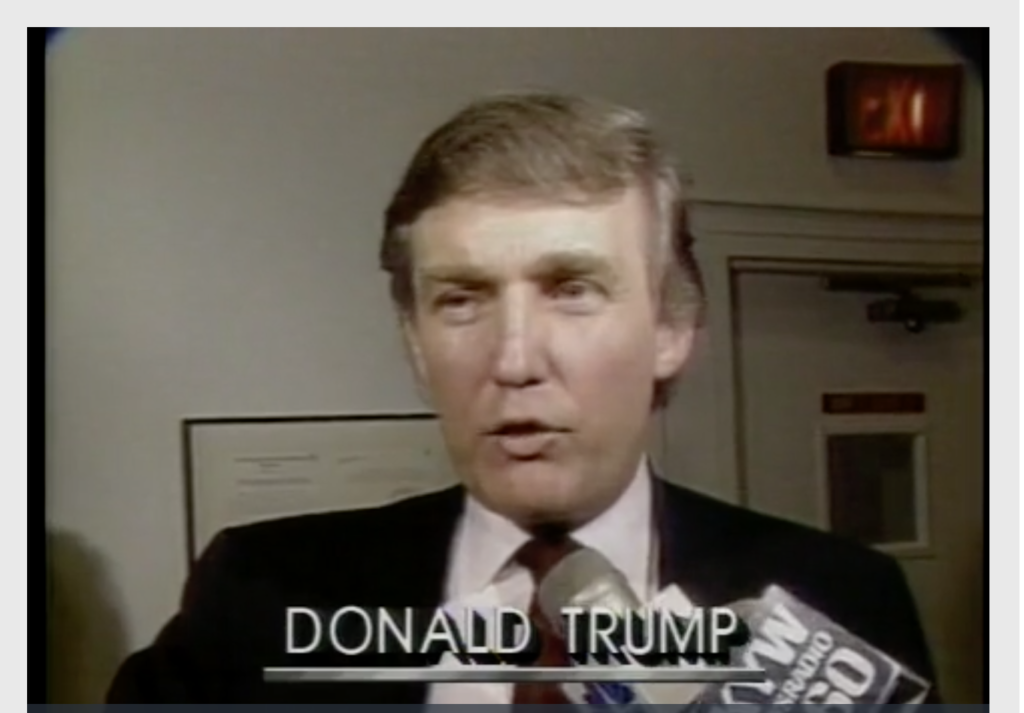The Reporter & The Bully (A Parable for the Undecided Voter)
I was a young reporter, working at my first on-air television job in New Jersey, when I was assigned a story about Donald Trump’s ability to cover the debts at his newest Atlantic City casino, the Taj Mahal.

Working the story, I interviewed a financial analyst named Marvin Roffman, who predicted trouble for the Taj. He was among the first to question Trump’s finances at a time when the celebrity developer was riding high.
Roffman wasn’t a grandstander. He didn’t call Trump a liar or a cheater. He simply looked at some numbers, did some math, and stated some facts.

After Roffman made these comments, Trump threatened legal action against his employer, Janney Montgomery Scott. The brokerage firm, in turn, pressured Roffman to write an apology letter retracting his remarks, which he did, but Trump, apparently dissatisfied with the level of groveling, wanted more. At that point Roffman balked, retracting the retraction and the apology.
Roffman was fired. He was also right. The Taj went through bankruptcy and ultimately failed (as did all of Trump’s casinos) and Roffman eventually won a settlement in a defamation suit against Trump. But the fact remains: A principled man lost his job because he spoke the truth and someone powerful—Donald Trump—didn’t like it.
That was in 1991. More than 30 years ago.
I never forgot that story. It certainly made an impression on a young journalist, one who, while striving to be fair and objective, was also just starting to learn that if there are (at least) two sides to every story, one of them may carry more weight.
Speaking truth to power is a basic tenet of a free press in a free society. “Democracy Dies in Darkness,” as the Washington Post tells us, even as the paper that exposed Nixon’s crimes is being lambasted by its own staff for not endorsing a candidate in this year’s presidential election. (You want to make a rule change, do it in the off-season. Quashing an already written endorsement for Kamala Harris sounds a lot like censorship.)
I’ve spent my career trying to be impartial and unbiased, to deal in the empirical and verifiable. A lot of that spilled over into my personal life. Avoiding even the perception of bias used to be a requirement when working as a journalist, but neutrality had the benefit of keeping peace at family gatherings, too.
I liked hanging out in that gray area where nuance reigns. It was interesting, informative, rich with ideas. It’s a place that’s getting harder and harder to find.
The politics of the Trump era—of a man who has been showing his true colors for decades—have polarized the country to a point where we can’t even talk to each other anymore. Forget intellectual discourse. We can’t even be civil. The lack of desire, never mind effort, to even try to understand someone with a different point of view is appalling.
J.D. Vance’s “childless cat lady” comment hit something so deeply within me, I can hardly explain it. It was a visceral reaction to a phrase that seemed to sum up the escalating attacks on not only my rights—to reproductive freedom, to affordable health care, to economic opportunity—but also my values as a woman, as a human, and as a citizen who actually does care about the future of the country and the planet, even if she doesn’t have any kids of her own to live in it.
There is still plenty of gray area. Maybe you don’t like some of Kamala Harris’s positions. Maybe the issue most important to you is not getting enough attention. Maybe you’re frustrated by the Democratic party’s shortcomings. Maybe you’re turned off by the whole damn thing.
But please don’t throw away your vote.
A vote for a third-party candidate is a vote for Donald Trump. Staying home on Election Day in “protest” is a vote for Donald Trump. And a vote for Donald Trump is exactly that: a vote for someone who has always used his position and power to benefit only Donald Trump.
I voted early for Kamala Harris. And if you’re on the fence, I hope you will, too. For me, the choice was clear. Black and white. If it’s not that clear for you, that’s OK. Do it anyway. If for no other reason than a return to civility and decency, an endorsement of a world where people are free to speak the truth without consequences.
If you want another fable, try Aesop’s “Four Oxen and the Lion.” The moral of that story: United we stand. Divided we fall.
And maybe reconsider if you cancelled your Washington Post subscription. No matter what happens, we need people of integrity dedicated to getting what the team that exposed the Watergate scandal called “the best attainable version of the truth.” They’re getting harder to find, too. And democracy does die in darkness.
